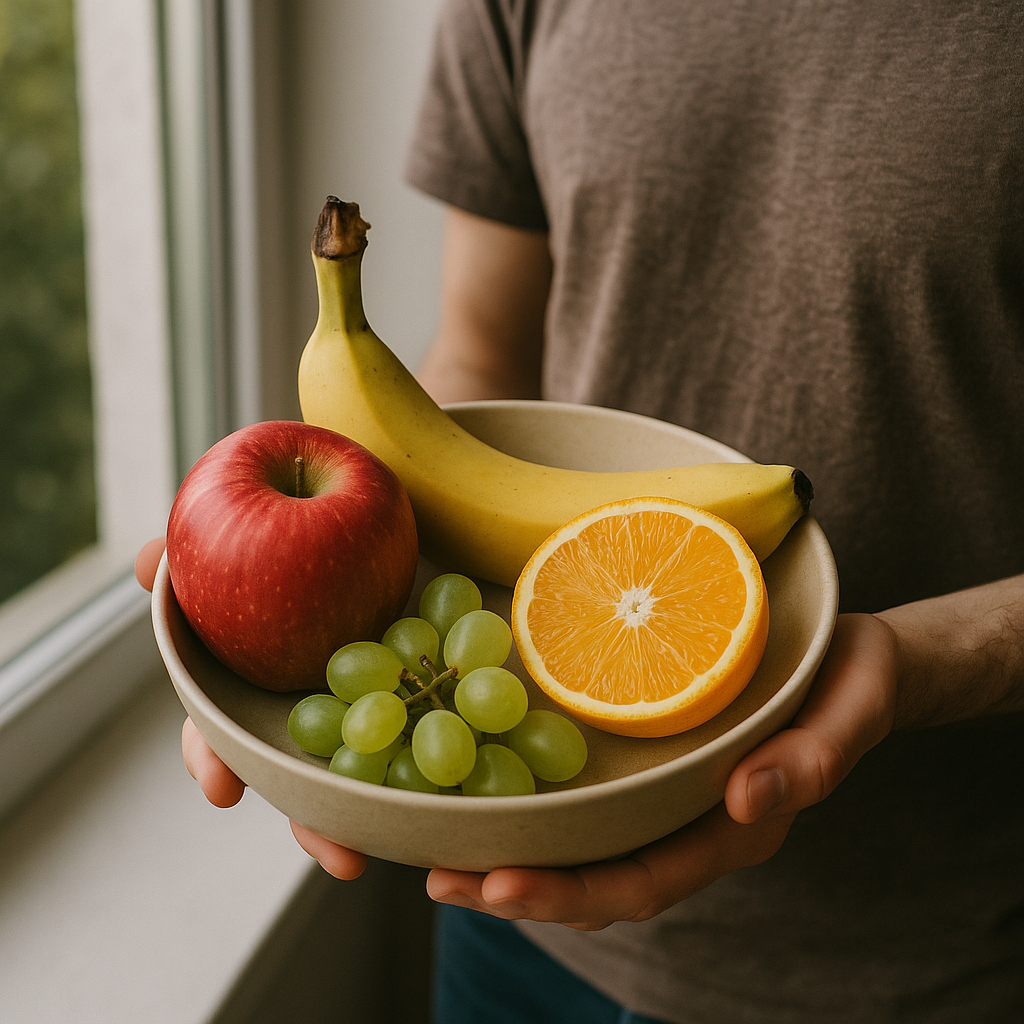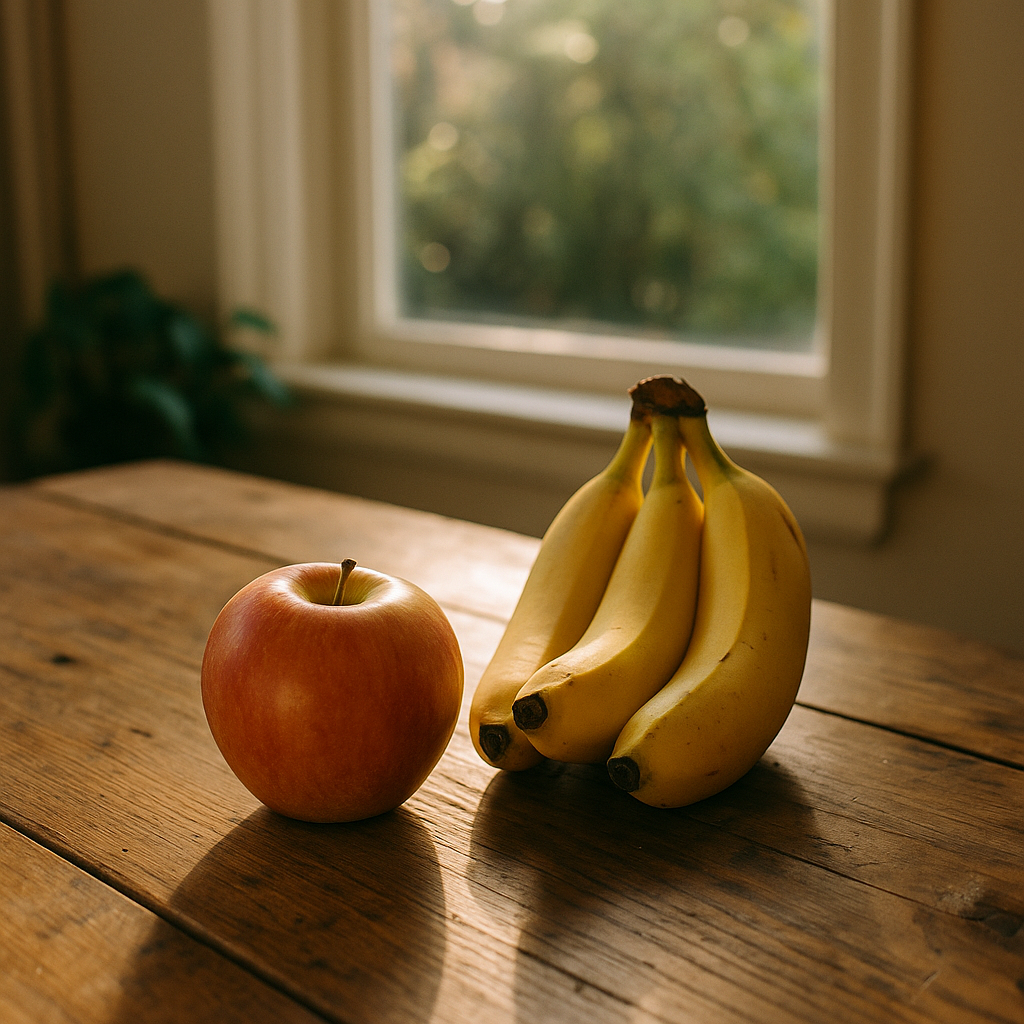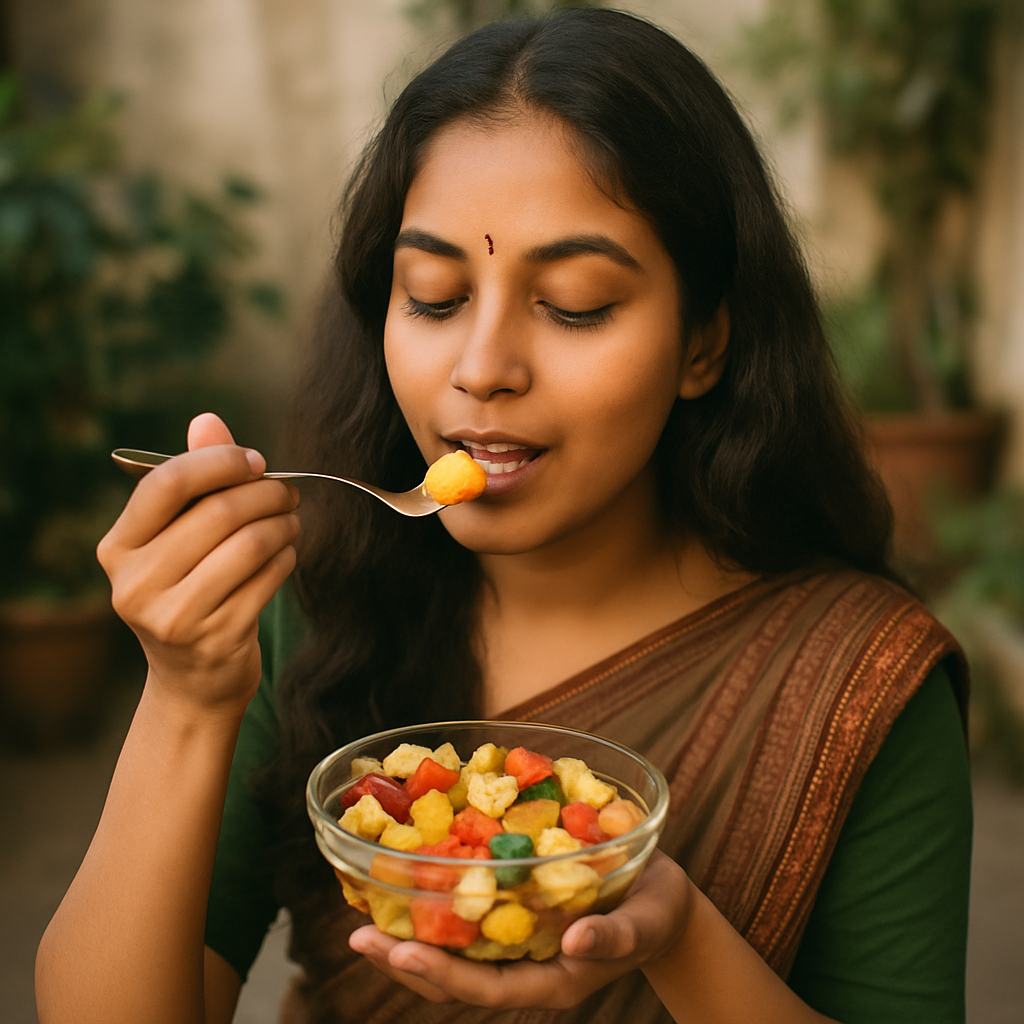Ask Ayurvedic doctor a question and get a consultation online on the problem of your concern in a free or paid mode. More than 2,000 experienced doctors work and wait for your questions on our site and help users to solve their health problems every day.
When to Eat Fruits According to Ayurveda: Best Timing for Maximum Health Benefits

Fruits are nature’s sweet gift, packed with vitamins, minerals, and antioxidants. But did you ever wonder when to eat fruits according to Ayurveda? Timing, as per this ancient science, plays a crucial role in how our body digests and absorbs nutrients. The best time to eat fruits according to Ayurveda isn’t just about convenience or taste—it’s about aligning with our body’s natural rhythms to maximize health benefits. Eating fruits at the wrong time might cause indigestion or reduce their nutritional impact. So if you want to learn the best time to eat fruits as per Ayurveda, or understand if fruits on empty stomach Ayurveda is a myth or truth, this article is for you.
Ayurveda teaches that the right timing for fruits supports digestion and balances the doshas—Vata, Pitta, and Kapha—ensuring that fruits nourish you completely. So, let’s dive into the perfect times to eat fruits according to Ayurveda and how you can use this knowledge for better wellness.
Best Time to Eat Fruits According to Ayurveda
What Is the Best Time to Eat Fruits According to Ayurveda?
According to Ayurveda, fruits are best consumed during the early part of the day, preferably before meals. This means mornings are the ideal time to enjoy your fruits because the digestive fire (agni) is fresh and can efficiently process the sugars and fibers. The question, what is the best time to eat fruits according to Ayurveda, generally points towards eating fruits as a standalone meal or snack early in the day.
Eating fruits first thing in the morning or at least 30 minutes before your main meals helps the body absorb nutrients better and avoids fermentation of fruit sugars in the stomach, which can cause bloating or discomfort. So, the right time to eat fruits Ayurveda experts suggest is on an empty stomach, rather than after heavy meals.
As per Ayurveda When to Eat Fruits for Better Digestion
Digestion is the cornerstone of good health in Ayurveda. Fruits are light and easy to digest but only if eaten at the right time. Ayurveda advises that fruits should not be eaten immediately after a meal as they may get trapped in the digestive tract due to their quick digestion, leading to fermentation or gas. So, as per Ayurveda when to eat fruits is usually separated from heavy foods by at least 1-2 hours.
When you eat fruits alone or on an empty stomach, the natural sugars convert to energy quickly, providing instant vitality. This timing also allows the digestive system to process fruits thoroughly without mixing with fats or proteins, which take longer to digest.

Eating Fruits on Empty Stomach: What Ayurveda Says
Fruits on Empty Stomach Ayurveda: Myths vs Reality
You might have heard different views about eating fruits on an empty stomach. Some say it’s a detoxifier and energy booster, while others warn it can cause acidity or discomfort. In Ayurveda, the belief is more nuanced. Eating fruits on an empty stomach is generally encouraged because fruits digest fast and don’t mix well with other foods in the stomach. This reduces the chances of indigestion.
However, not all fruits suit an empty stomach. For instance, very sour or acidic fruits might irritate some people’s digestive tracts if eaten alone first thing in the morning. So, the fruits on empty stomach Ayurveda advice depends on individual constitution (dosha) and the fruit type.
Which Fruits Are Suitable on an Empty Stomach?
According to Ayurveda, sweet and juicy fruits like melons, grapes, apples, and pears are excellent to eat on an empty stomach. These fruits hydrate and replenish the body gently. On the other hand, citrus fruits such as oranges and pineapples, which are more acidic, might be better enjoyed after some food has been consumed or later in the day.

Can We Eat Fruits at Night: Ayurvedic View
Which Fruits Can Be Eaten at Night as per Ayurveda
The question of can we eat fruits at night Ayurveda often pops up in wellness circles, and Ayurveda’s answer is a bit cautious. Generally, Ayurveda advises against eating fruits late at night because digestion slows down, and the natural sugars in fruits might not be processed properly, leading to heaviness or gas. But does this mean no fruits at all after sunset?
Actually, some fruits are gentle enough to be eaten at night and can even help balance certain doshas. For instance, sweet, less acidic fruits like ripe bananas, cooked apples, or pears are often considered suitable for night-time snacking as per Ayurveda when to eat fruits guidance. These fruits are nourishing and less likely to disturb digestion during the slower metabolic phase of night.
In contrast, very sour or dry fruits, such as unripe mango or raw apples, might aggravate digestive issues if eaten too late. The takeaway? If you’re wondering which fruits can be eaten at night as per Ayurveda, stick to soft, sweet, and easy-to-digest options and avoid heavy or acidic ones.

Best Time to Eat Fruits as per Ayurveda for Each Dosha
Pitta, Vata, and Kapha: Personalized Timing Guidelines
One of Ayurveda’s greatest strengths is its personalized approach. The best time to eat fruits as per Ayurveda can vary depending on your dosha (body constitution):
-
Pitta dosha, characterized by heat and intensity, benefits from cooler, sweet, and juicy fruits like melons and grapes. Pitta types can eat fruits in the mid-morning when digestion is strong but should avoid overly sour fruits, especially at night.
-
Vata dosha tends to be dry and light, so warm or cooked fruits like baked apples or stewed pears eaten in the morning or early afternoon help soothe their digestion. Vata people may struggle with raw fruits on an empty stomach because of their tendency toward dryness.
-
Kapha dosha, often slower and heavier, needs lighter and more astringent fruits to stimulate digestion. Fruits like apples, pomegranates, or berries are best eaten mid-morning or early afternoon for Kapha types, avoiding late-night fruit consumption to prevent sluggishness.
Understanding your dosha can guide you to the best time to eat fruits Ayurveda style, improving digestion and nutrient absorption.
Fruits That Balance Doshas When Eaten at the Right Time
Eating fruits aligned with your dosha at the right time can help maintain balance. For example, sweet, hydrating fruits like watermelon cool down Pitta and hydrate Vata, while astringent fruits such as pomegranates help Kapha by stimulating metabolism.

Tips on How to Eat Fruits for Maximum Benefits
Food Combining Principles in Ayurveda
Ayurveda has strong opinions about food combining, especially with fruits. One key principle is to eat fruits alone or at least 30 minutes before or after other meals. Combining fruits with heavy proteins or fats can cause fermentation in the gut, leading to discomfort and bloating.
Another tip is to avoid mixing fruits with dairy products, as this can disrupt digestion. So, if you’re wondering fruits at night Ayurveda or any other time, it’s better not to combine fruits with milk or yogurt for optimal digestion.
Fruits to Avoid After Meals or with Milk
Certain fruits like melons and citrus are better eaten alone and not immediately after meals or with milk. These combinations can be hard to digest and may cause acidity or gas, according to Ayurveda.
Conclusion
Understanding when to eat fruits according to Ayurveda can truly change how your body responds to this natural source of nourishment. The best time to eat fruits according to Ayurveda is typically in the morning or on an empty stomach, allowing your digestive fire to process them efficiently and maximize nutrient absorption. Eating fruits at the right time not only helps digestion but also supports the balance of your doshas—Vata, Pitta, and Kapha—leading to improved overall health.
While fruits are undoubtedly healthy, Ayurveda reminds us that timing and combinations matter. Avoid eating fruits immediately after heavy meals or mixing them with dairy products, and be cautious about consuming fruits at night, unless you choose ones suitable for late hours, like ripe bananas or cooked apples. Following these guidelines ensures you reap the full benefits of fruits without digestive discomfort.
So next time you reach for a juicy mango or a crisp apple, remember the perfect times to eat fruits according to Ayurveda and honor your body’s natural rhythms. Your gut (and your energy levels) will thank you!
If you found this helpful, feel free to share it with friends or family who might benefit from Ayurvedic wisdom on healthy eating.
FAQs
Can we eat fruits after meals in Ayurveda?
Ayurveda generally advises against eating fruits immediately after meals because fruits digest faster and can ferment if mixed with heavier foods. It’s better to wait at least 1-2 hours before or after eating fruits.
Why does Ayurveda recommend eating fruits alone?
Fruits are digested quickly, and eating them alone prevents fermentation and indigestion caused by mixing with slower-digesting foods like proteins or fats.
Is it okay to eat fruits at night as per Ayurveda?
Eating fruits at night is usually discouraged because digestion slows down, but soft, sweet fruits like ripe bananas or cooked apples are exceptions that can be consumed at night without issues.
What fruits are best to eat in the morning according to Ayurveda?
Sweet, juicy fruits such as melons, grapes, apples, and pears are considered ideal for morning consumption as they hydrate and energize the body gently.

